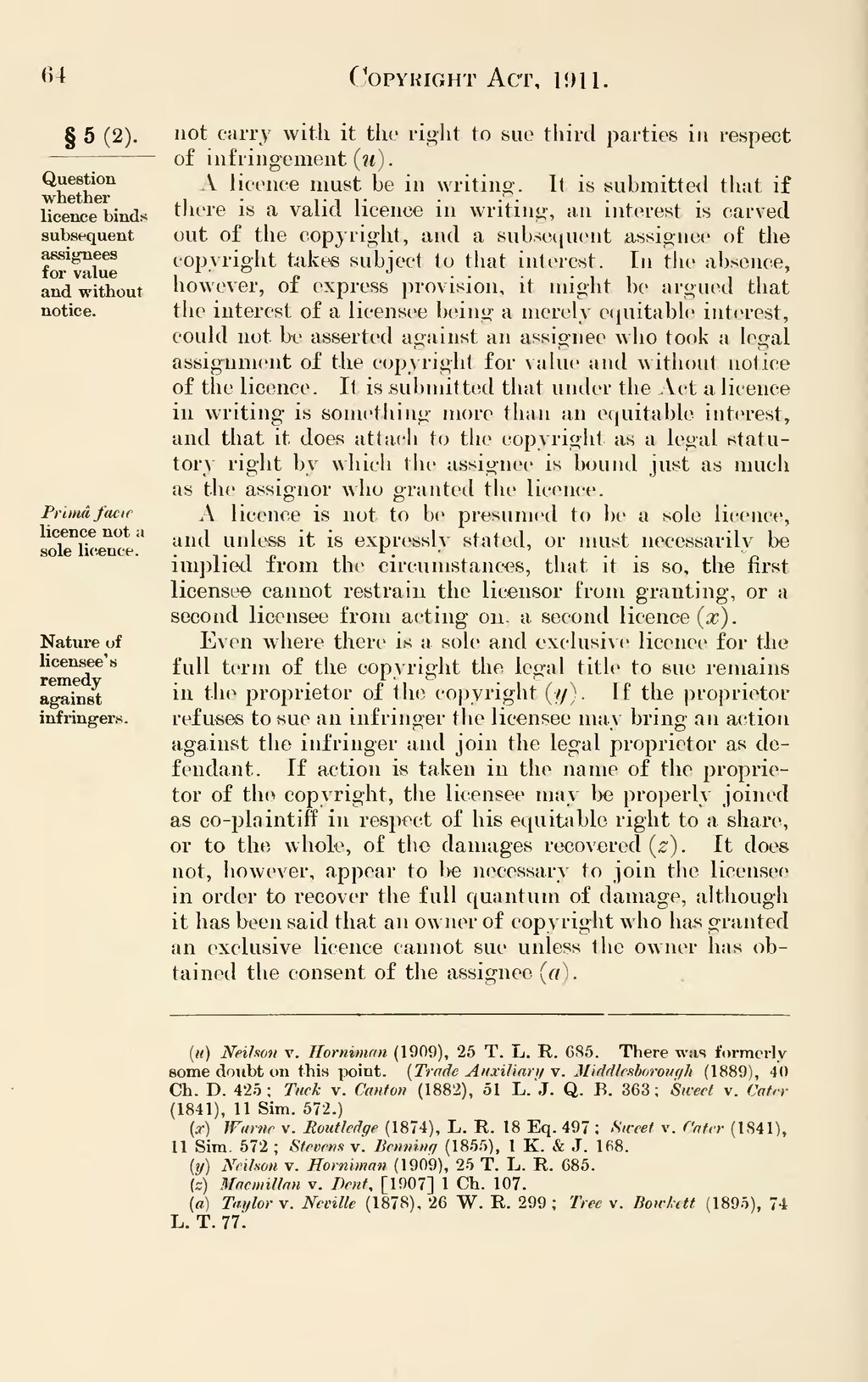64
��Copyright Act, 1911,
��§ 5 (2).
Question whether licence binds subsequent assignees for value and without notice.
��Prima facie licence not a sole licence.
��Nature of
licensee's
remedy
against
infringers.
��not carry with it the right to sue third parties in respect of inf ring-ement (w) .
A licence must be in writing. It is submitted that if there is a valid licence in writing, an interest is carved out of the copyright, and a subsequent assignee of the copyright takes subject to that interest. In the absence, however, of express provision, it might be argued that the interest of a licensee being a merely equitable interest, could not be asserted against an assignee who took a legal assignment of the copyright for value and without notice of the licence. It is submitted that under the Act a licence in writing is something more than an equitable interest, and that it does attach to the copyright as a legal statu- tory right by Avhich the assignee is bound just as much as the assignor who granted the licence.
A licence is not to be presumed to be a sole licence, and unless it is expressly stated, or must necessarily be im]3lied from the circumstances, that it is so, the first licensee cannot restrain the licensor from granting, or a second licensee from acting on, a second licence {x).
Even where there is a sole and exclusive licence for the full term of the copyright the legal title to sue remains in the proprietor of the copyright {y). If the proprietor refuses to sue an infringer the licensee may bring an action against the infringer and join the legal proprietor as de- fendant. If action is taken in the name of the proprie- tor of the copyright, the licensee may be properly joined as co-plnintiff in respect of his equitable right to a share, or to the whole, of the damages recovered (2:) . It does not, however, appear to be necessary to join the licensee in order to recover the full quantum of damage, although it has been said that an owner of copyright who has granted an exclusive licence cannot sue unless the owner has ob- tained the consent of the assignee {a).
��{u) JSfeilson v. Horniman (1909), 25 T. L. R. 685. There was formerly some doubt on this point. [Trade Auxilianj v. M\ddleshorouqh (1889), 40 Ch. D. 425; Tuck v. Canton (1882), 51 L. J. Q. B. 363; Sweet v. Cater (1841), 11 Sim. 572.)
[x) Warne v. Routledge (1874), L. R. 18 Eq. 497 : Sivcet v. nater (1841), 11 Sim. 572 ; Stevens v. Benninq (1855), 1 K. & J. 168.
(y) Neihon v. Horniman (1909), 25 T. L. R. 685.
(z) Macmillan v. Bent, [1907] 1 Ch. 107.
(«) Tai/lor V. Neville (1878), 26 W. R. 299 ; Tree v. Boickett (1895), 74 L. T. 77'.
�� �
